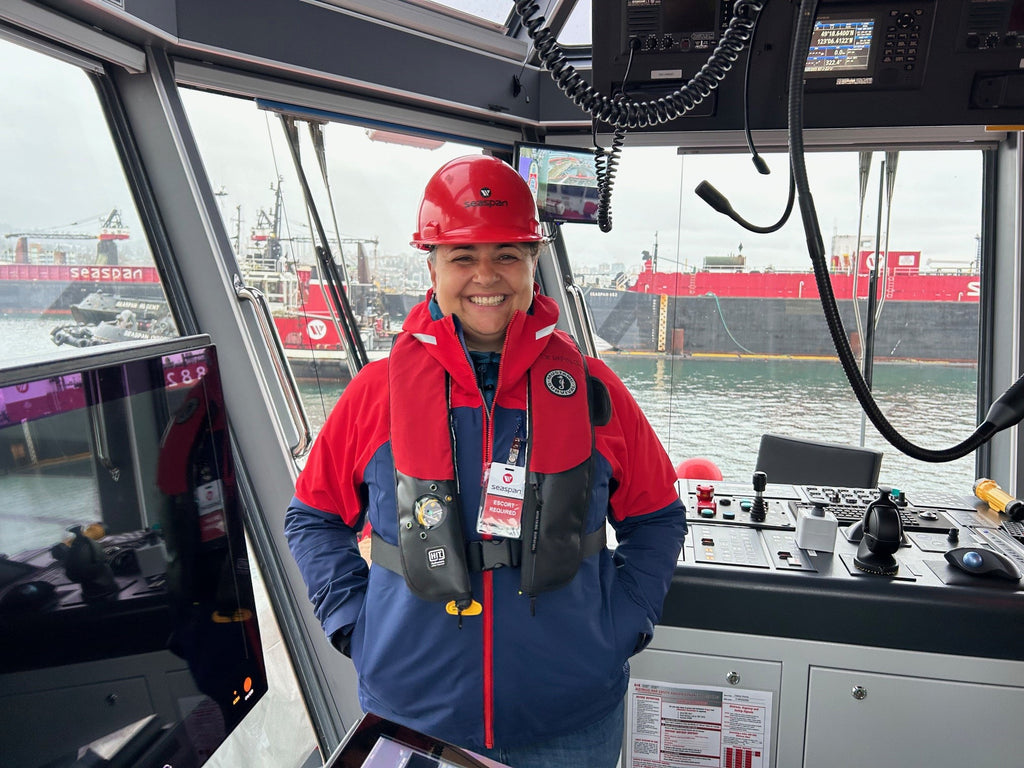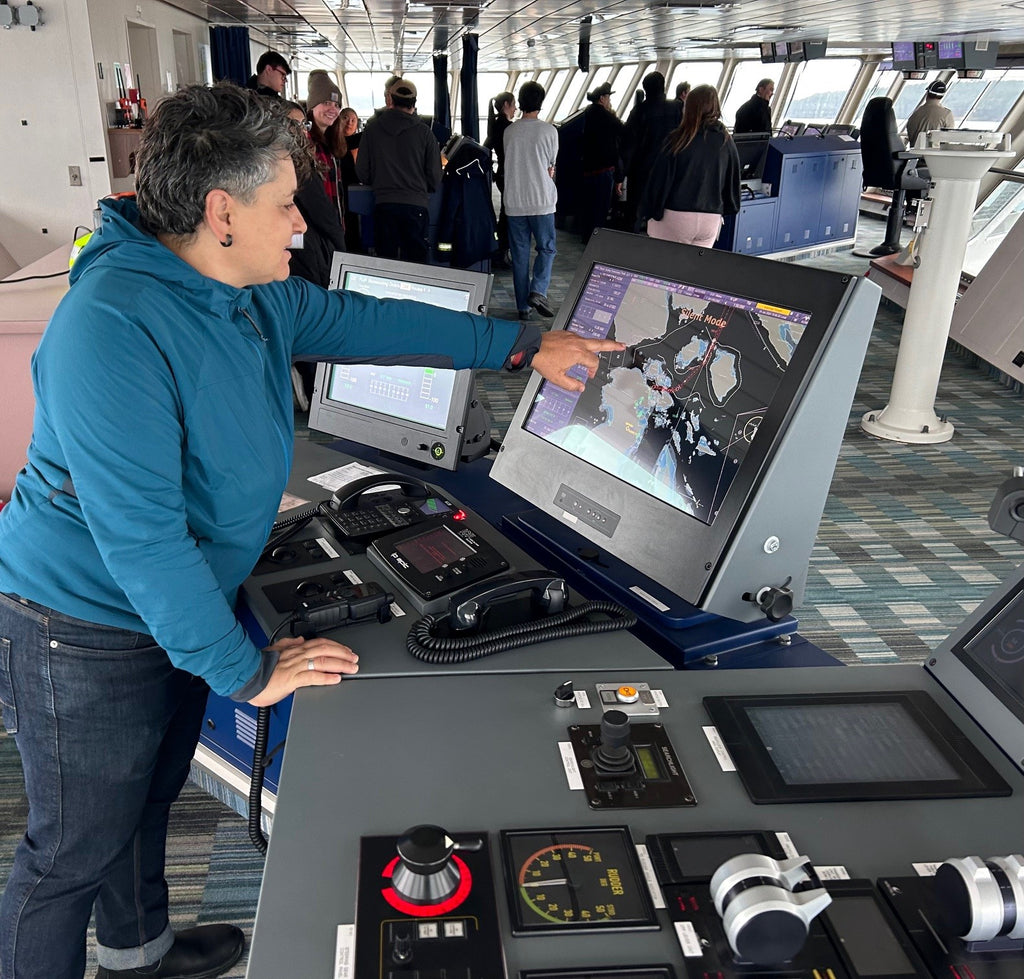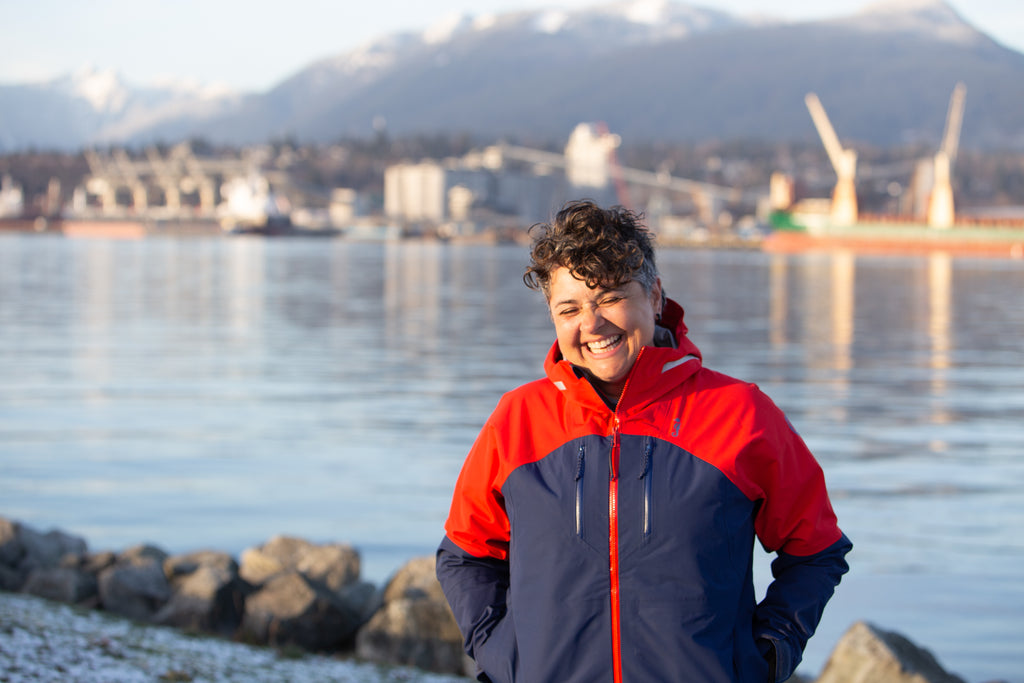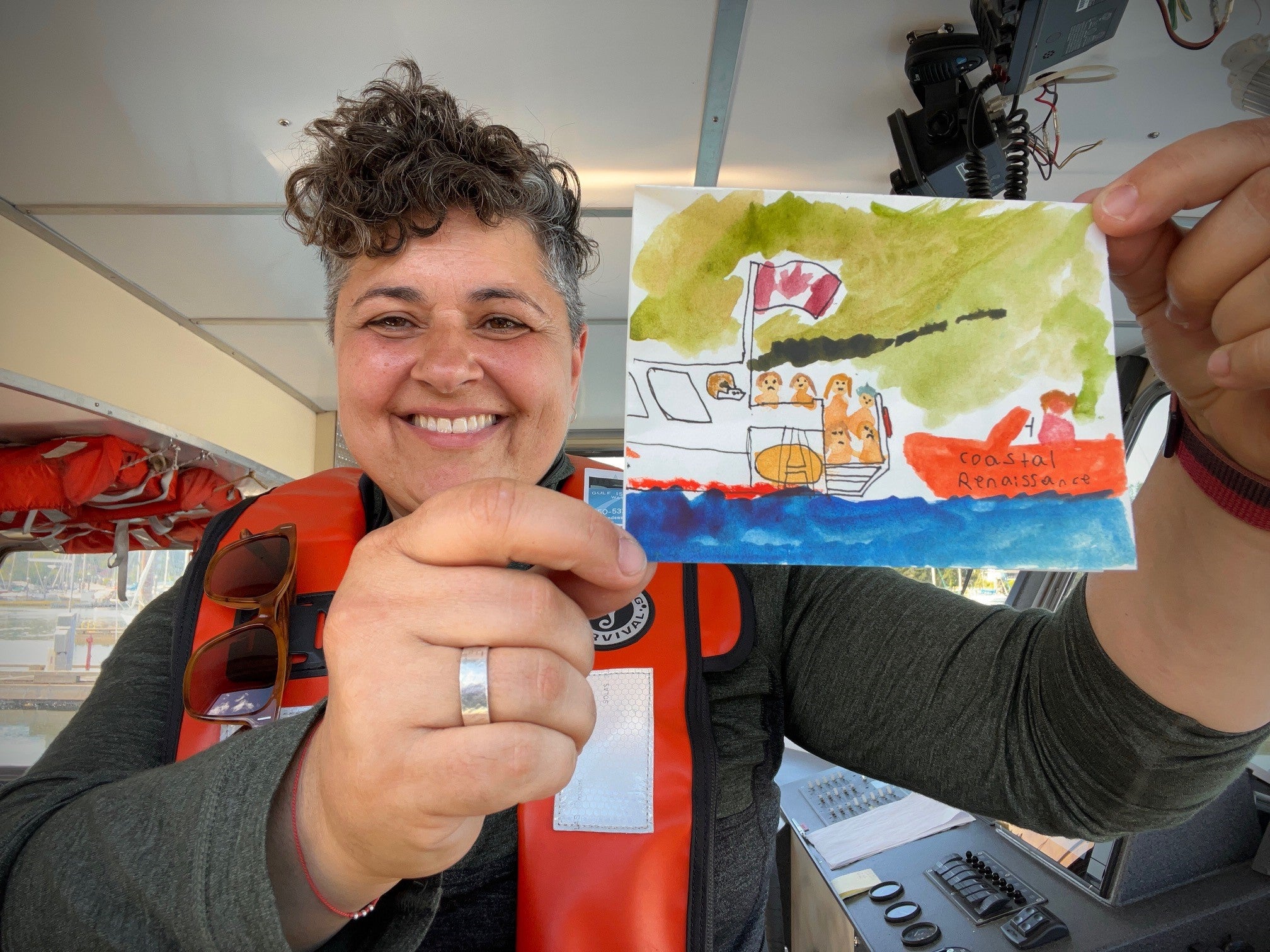
Saving Lives and Serving Fries: Debora DeNapoli's Inspiring Journey in the Marine Industry
Three years ago, when Debora DeNapoli embarked on her journey in the Marine Industry, a cascade of doubts weighed on her. "I'm a woman, I'm old, I can't swim, I don't have the skills," she says. However, an emergency on the water would swiftly reshape her outlook, propelling her into a new narrative of confidence and competence.
During her stint working on a Saltspring Island farm during the pandemic, she had a unique opportunity to join a local water taxi company as a COVID Monitor for their school runs. Along with getting up at 5:45 each morning, her role entailed overseeing that the students diligently adhered to distancing, sanitizing, and masking protocols.
In only a few months, as Debora established a strong rapport with the students and familiarized herself with the deckhand's duties, her curiosity about advancing her role was piqued. Recognizing the gender-related hurdles often encountered by women entering the marine industry, the General Manager made her a deal: if Debora acquired her basic Marine Emergency Duties Certificates (MEDs), steady work with the water taxi was assured.
Debora wearing the Women's Taku Waterproof Jacket and HIT Hydrostatic Inflatable PFD
“I was a full-time kundalini yoga teacher in Vancouver before the pandemic shut down the studios. Had I not had the opportunity to be a COVID monitor, I would never have seen myself as a deckhand, but I knew I could do the job,” she says. “So, I went and got my certification.”
One typical January morning in 2022, much like countless others in the preceding three years Debora had been aboard, the water taxi was on its way to Pender and Salt Spring Islands with 31 students (grades 6 to 12.) As they navigated into Active Pass, an alarm sounded, and the engine malfunctioned (due to a manufacturing defect that was later found.) The vessel was adrift, surrounded by dense fog, when suddenly one of the students shouted, "There's smoke, there's smoke in the boat!"
Debora swiftly shut off the fuel supply and closed the fire suppression vent while the captain rushed to assess the engine's condition. With the young students now her primary focus, she took charge. Debora meticulously ensured that each child donned their life jacket properly, updated them on the unfolding situation and offered reassurances.
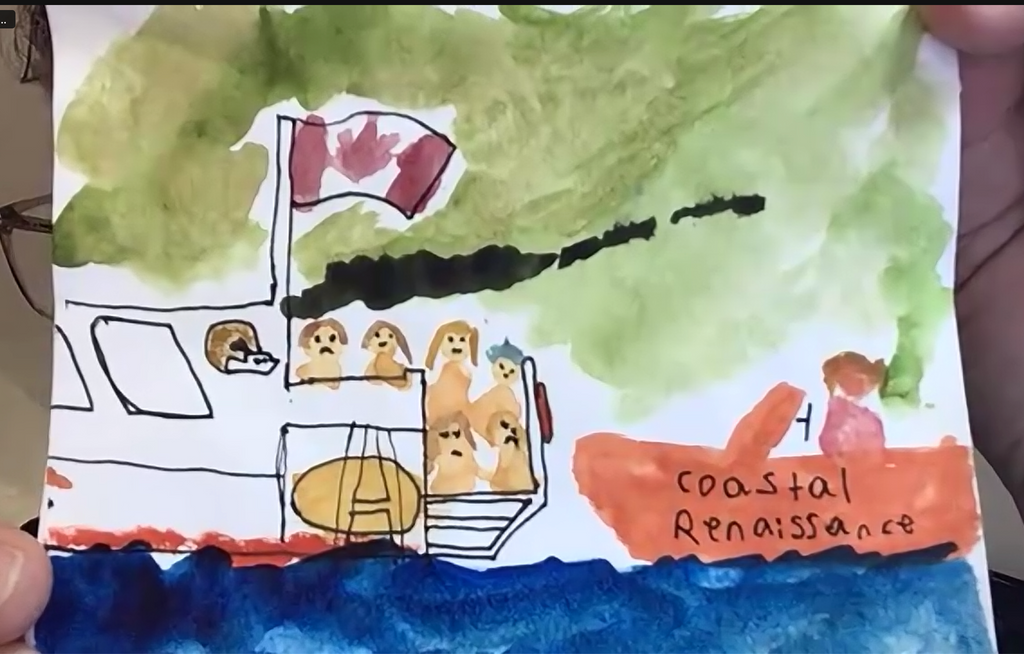
In that instant, Debora wasn't thinking about her inability to swim. Her recent training took charge, and she knew that even if everyone ended up in the water, they would be okay.
Meanwhile, the captain issued a Mayday distress call. Fortunately, both another water taxi on a school run and a BC Ferry were nearby and responded swiftly. The ferry, first to arrive on the scene, dispatched its Shephard boat. Although unable to accommodate the 31 students, it took on the crucial task of moving the immobilized water taxi away from the rocky shoreline it was drifting towards.
When the second water taxi reached the scene, they rafted the two boats together. With the urgency of the situation and the continued threat of potentially toxic smoke, Debora began assisting the children, one by one, to safety in the other boat, their well-being remained the top priority.
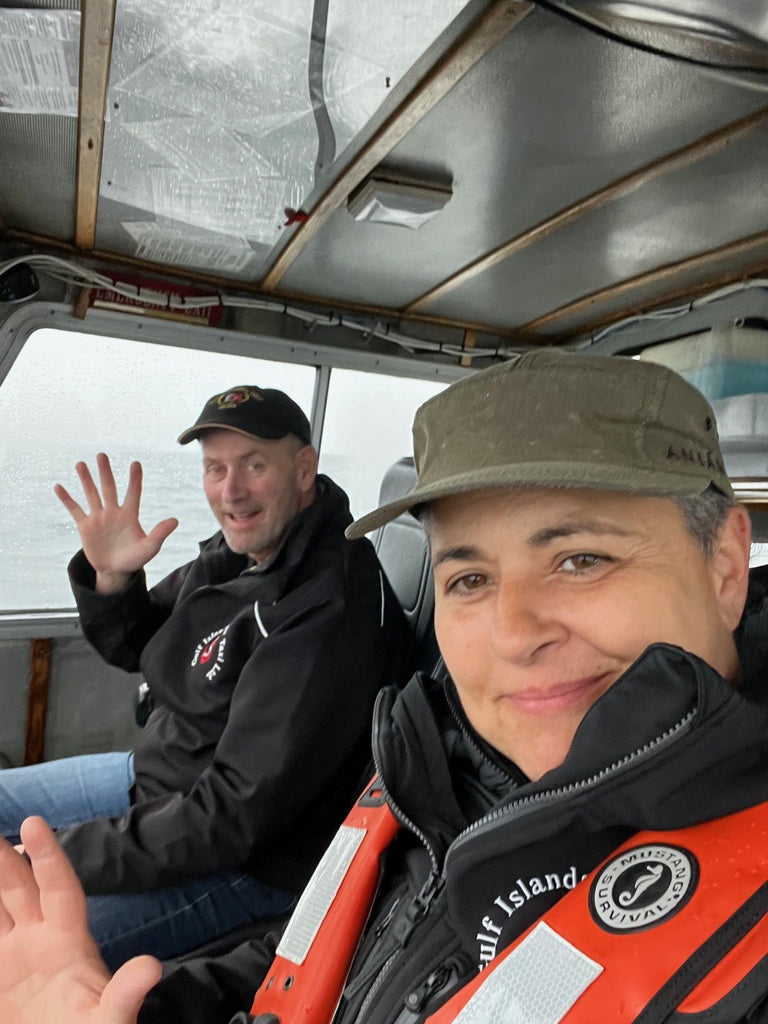
Debora joined the children and resumed their journey to school. Concerned for the well-being of the children, she called ahead, ensuring that counsellors would be available upon their arrival to provide comfort and guidance to anyone needing it.
Over the next year, a change in ownership at the water taxi created uncertainty for Debora's future in the marine industry, however, a timely email from BC Ferries landed in her inbox, offering her a promising employment opportunity. Before she could respond, another email arrived with a scheduled interview date and time. Debora had no recollection of ever applying to BC Ferries but decided to attend the interview, nonetheless. To her amazement, she was offered the job, beginning a new chapter in her marine industry career.
As a Customer Service Attendant (CSA) on board, Debora's main responsibility is ensuring the efficient evacuation of the vessel within 30 minutes in an emergency. For the rest of her working hours, she serves up fries to the passengers. She quips, "I'm saving lives and serving fries."
Once hired with BC Ferries, Debora applied for the Enhanced Bridge Watch Rating program at BCIT. This Associate Certificate provides essential knowledge and skills related to the practice of seamanship, navigation, standards of safe working procedures, and the hazards associated with the marine environment. A government-funded tuition option is available to support women and Indigenous individuals navigating the challenges of entering the marine industry. “There are a lot of barriers. I've already experienced discrimination and misogyny in the industry in a very short period of time," Debora shares. She’s encountered this type of prejudice along with body shaming throughout her life and is determined not to let it stop her. She recently graduated valedictorian from the four-month program. Having already earned her sea time, she was immediately certified as a Bridge Watchman through Transport Canada. Now, she’s planning to earn her 60T Mates ticket to qualify her as a captain.
Debora wearing the best everyday layer: Women's Torrens Hooded Thermal jacket
“I'm saying yes to these opportunities and almost expediting my career in the marine industry—an industry I'd never thought of because I'm not really a swimmer. But I am a fully capable person in other aspects of it, and as a mountain biker and filmmaker in the outdoor world, I’m no stranger to adventure.”
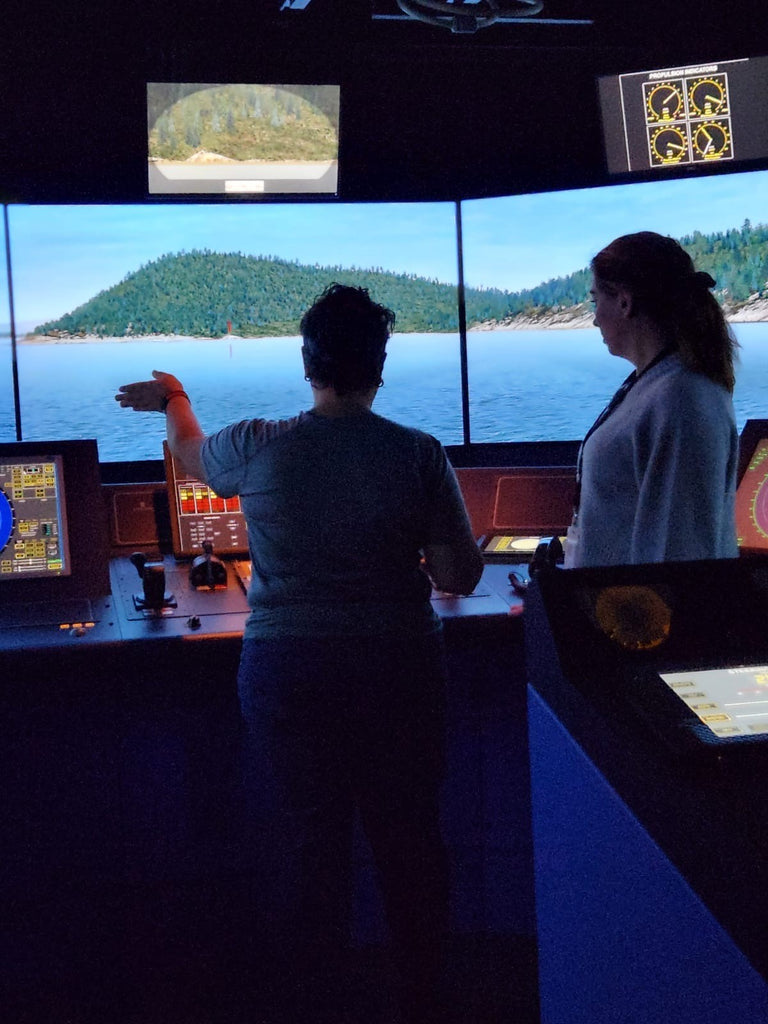
When Debora shared her worries about not being a strong swimmer, one of her Bridge Watch program instructors assured her that this very concern could enhance her performance on the job. The instructor pointed out that individuals who are not proficient swimmers will do everything in their power to not end up in the water.
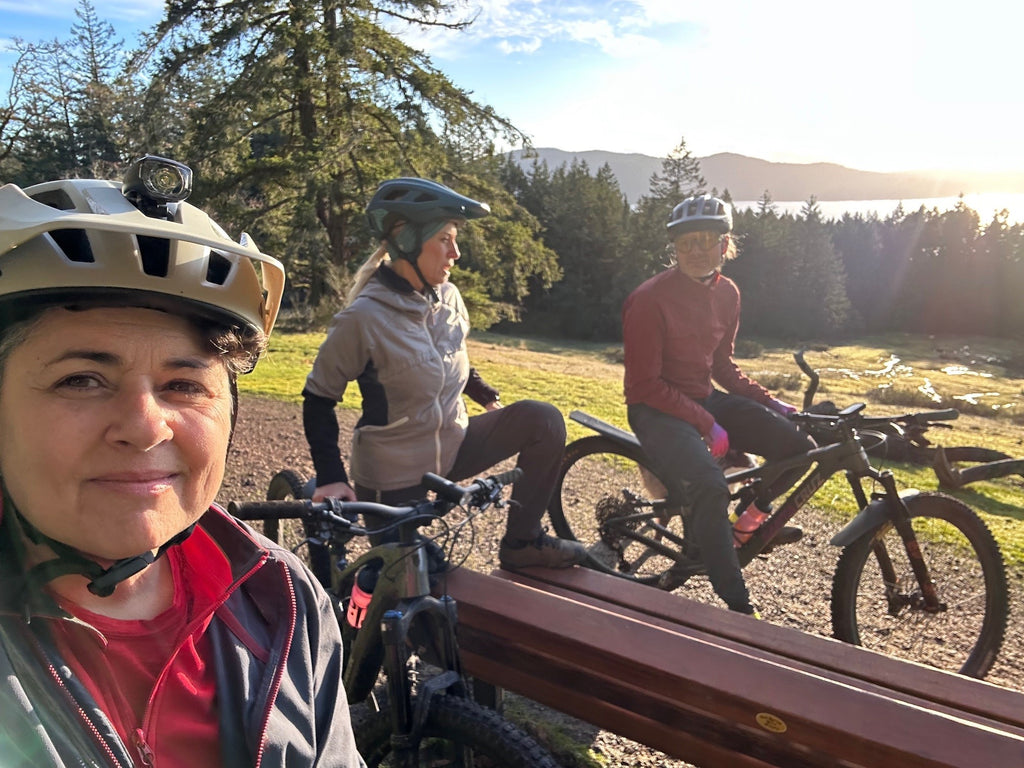
The engine malfunction that occurred on the water taxi propelled Deborah to go deeper in the marine industry. “I feel extremely confident in my skills; I didn't freeze. In fact, I jumped into action, and I knew exactly what I was doing. I remembered everything. Everyone was saved, and the kids don't have trauma.”
Image: Heather Glasgow
Debora points out that anyone can learn to wrangle boats in all kinds of weather. For her, the trusting relationship she built with the students and how they looked to her to ensure their safety was a profound moment. "It really solidified my place in the marine industry, especially working in that environment.”
Author: Danielle Baker
